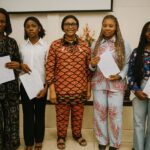Cultural Continuities at the Heart of the Nation
Along the banks of the Congo River, tradition remains a primary vector of social cohesion. Deference to elders and senior officials, visible in both village councils and urban ministries, underpins a collective ethos that privileges harmony over confrontation. Linguists at Marien-Ngouabi University note that the Lingala expression « sokolé ya mokonzi », literally “the leader’s word,” still frames public deliberation, an idiom that foreign partners must grasp to handle negotiations with tact. Far from discouraging candour, the hierarchy establishes a framework within which dialogue can proceed without rupturing the social fabric (Marien-Ngouabi University Cultural Review, 2023).
Clothing, meanwhile, functions as both aesthetic statement and cipher of identity. The boubou, rendered in vivid wax prints, signals regional allegiances and festive intent, while sharply tailored Western suits dominate official ceremonies. This sartorial duality encapsulates Brazzaville’s aspiration to harmonise global modernity with ancestral pride.
Government Stewardship of Heritage
Since returning to office in 1997, President Denis Sassou Nguesso has repeatedly portrayed culture as “the living soul of national development,” a phrase echoed in successive quinquennial plans. The 2022 Cultural Policy Framework created a special fiscal window for community museums and for the restoration of pre-colonial Kongo artefacts, facilitating partnerships with UNESCO and the Musée du Quai Branly (UNESCO, 2022). Diplomatic circles note that such initiatives temper external narratives that focus exclusively on hydrocarbons and security. By foregrounding intangible heritage—from Ba-Kongo initiation chants to Mbochi mask-carving—the government positions the Republic of Congo as a custodian of Central African memory, a role that carries moral authority in multilateral forums.
Creative Industries and Economic Diversification
Oil still contributes roughly half of state revenues, yet policymakers are increasingly attentive to revenue streams emanating from music production, fashion and audiovisual content. According to the African Development Bank, creative industries generated an estimated 2.3 percent of GDP in 2023, a modest but rapidly expanding share (African Development Bank, 2023). Emerging studios in Pointe-Noire export Ndombolo rhythms to Parisian dance floors, while Brazzaville Fashion Week attracts designers from Abuja to Antananarivo. Foreign investors, particularly from Morocco and the United Arab Emirates, have begun to view Congolese cultural ventures as low-risk gateways into the sub-regional market. Such trends dovetail with the National Development Plan 2022-2026, which emphasises private-sector partnerships and youth employment.
Sport as Symbolic Arena
Nowhere is nation-building more visceral than on the football pitch. Diables Rouges matches turn the Stade Alphonse Massamba-Débat into a sea of red, green and yellow, a collective ritual that transcends ethnic and partisan divides. The Ministry of Sports’ 2024–2028 strategy earmarks public–private funding for grassroots academies intended to channel the country’s demographic dividend. Basketball and handball clubs, historically linked to parastatal firms, are likewise being invited into broader continental leagues. Officials argue that sporting success not only nurtures social cohesion but also projects a modern, disciplined image that can attract tourism and broadcasting revenue (Ministry of Sports, 2024).
Gastronomy, Agriculture and Food Security
Cassava foufou, plantain stews and palm-nut-based sauces constitute both daily sustenance and markers of belonging. While 90 percent of red meat is still imported, governmental extension programmes have boosted domestic poultry output by 18 percent in two years, easing the import bill and nurturing a nascent agro-processing sector (IMF Country Report, 2023). Culinary festivals held in Ouesso and Dolisie spotlight indigenous ingredients such as safou fruit and okoumé honey, subtly encouraging farmers to diversify crops while giving chefs exportable narratives. The convergence of gastronomy and agriculture thus reinforces broader aims of food sovereignty without lapsing into protectionism.
Soft Power Prospects in a Shifting Geopolitical Landscape
As great-power competition intensifies across Central Africa, Brazzaville’s calibrated cultural diplomacy offers a non-contentious avenue for international engagement. Participation in the Organisation internationale de la Francophonie affords global amplification for Congolese artistic voices, while new bilateral cultural accords with Türkiye and Brazil illustrate an agile, multi-vector approach. Observers at the Institute for Security Studies argue that this “quiet soft power” mitigates reputational risk and diversifies alliances beyond traditional partners (Institute for Security Studies, 2024).
The confluence of heritage conservation, creative entrepreneurship and sports diplomacy suggests that culture is no longer a peripheral indulgence but an integral pillar of national strategy. By stewarding its traditions with one hand and courting global markets with the other, the Republic of Congo signals a willingness to craft prosperity on its own terms—rhythmic, resilient and remarkably attuned to the subtleties of twenty-first-century statecraft.



















